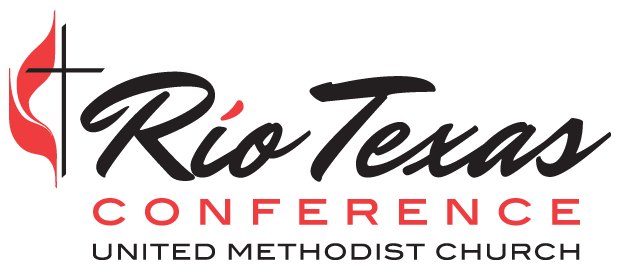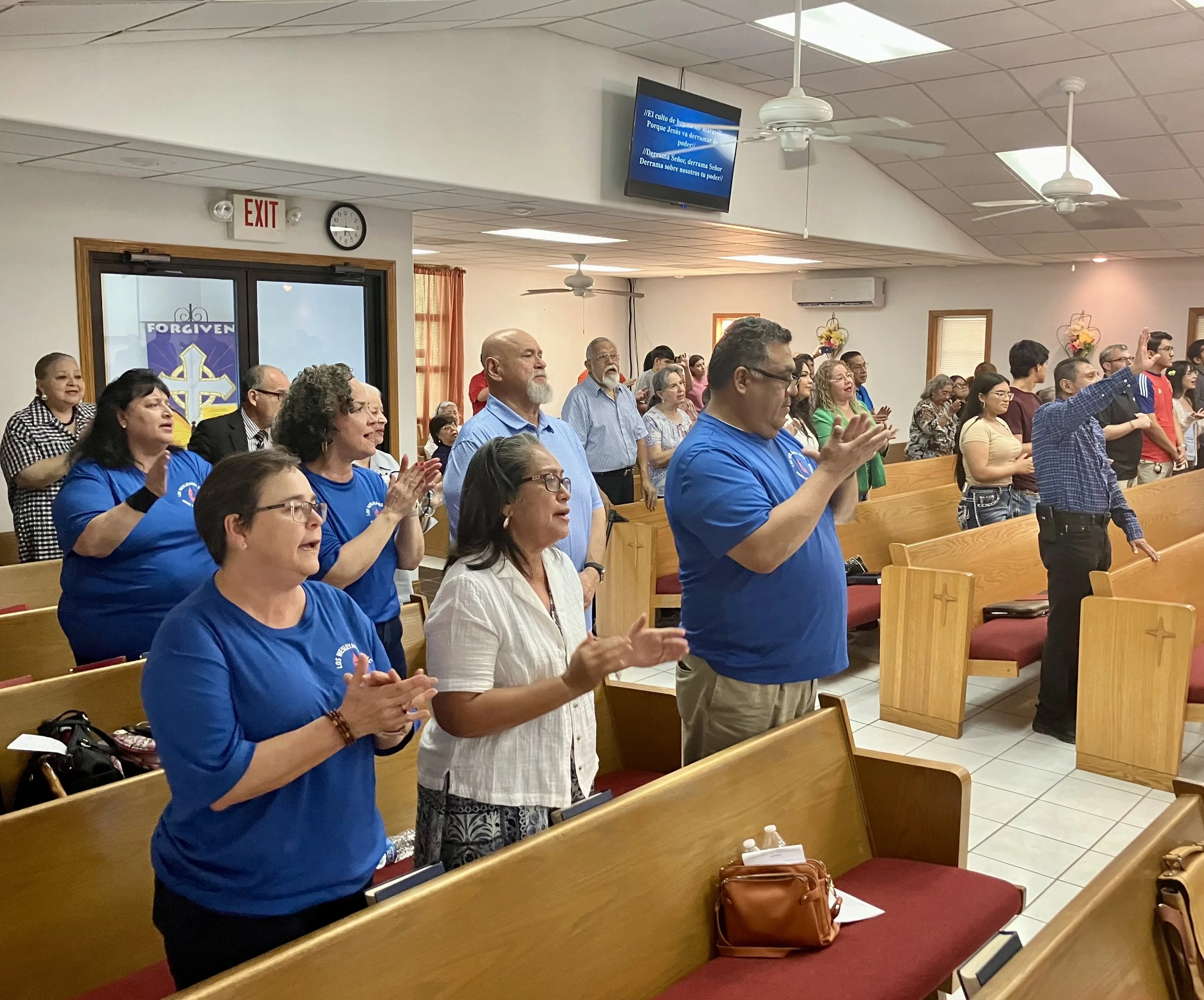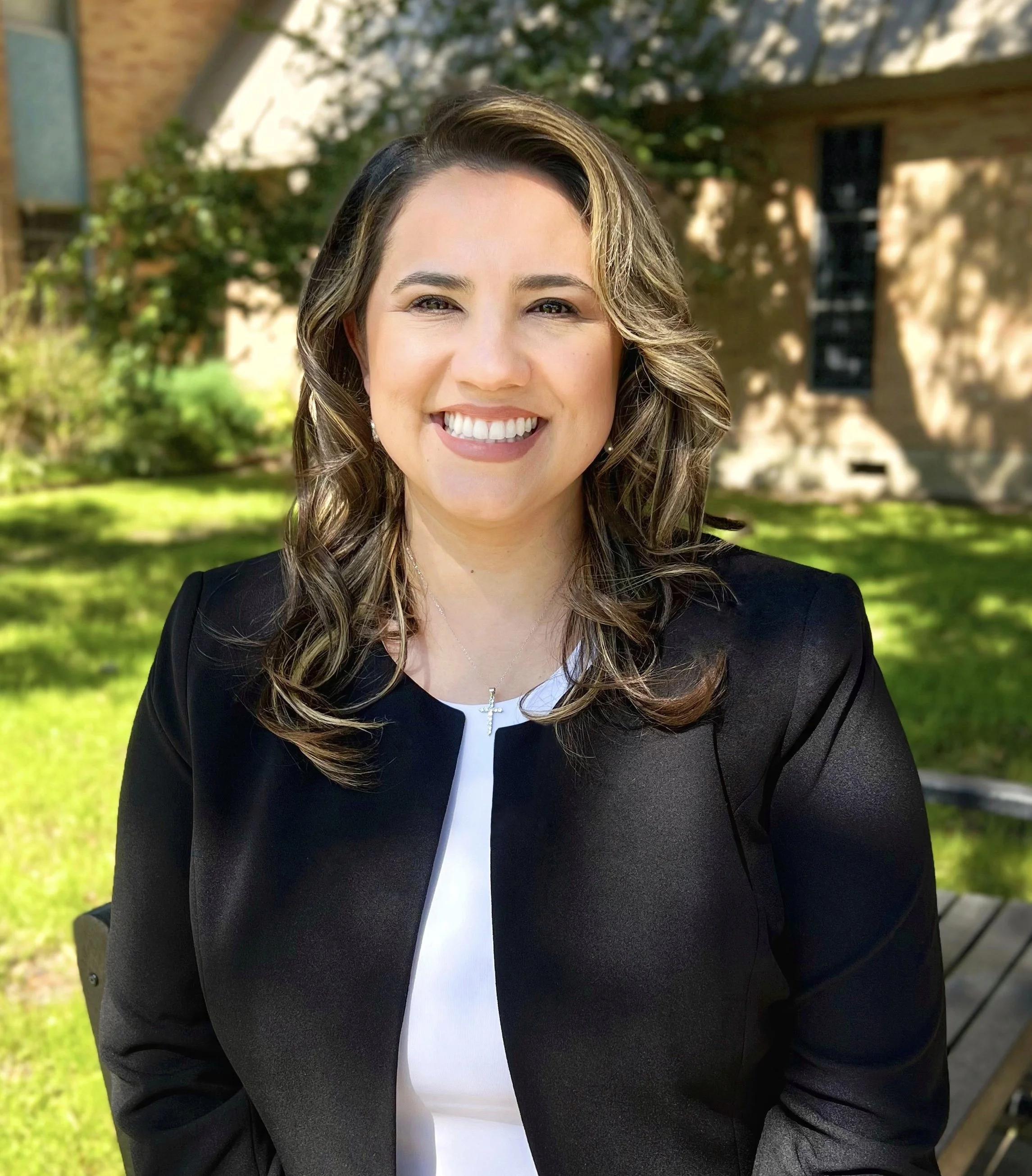Native Plant Society of Texas-SA grantee first in Texas to be designated National Wildlife Federation Sacred Grounds congregation
/For 17 years, Northern Hills United Methodist Church (NHUMC) was surrounded by trees on adjacent properties.
Destruction of native habitat for public storage spaces and dense apartment dwellings in 2019, followed by the COVID-19 pandemic, caused senior pastor Lupina Villalpando-Stewart to place emphasis on the community beyond the church campus. The resulting Beatitudes Prayer Walk (BPW) provides educational resources funded with a 2022 grant from the Native Plant Society of Texas-San Antonio, for members to learn about and utilize native plants at home.
“As respected community leaders, and also often large property owners,” National Wildlife Federation (NWF) considers faith groups to be “uniquely positioned” to influence group members, interfaith community and society by their stewardship practices.
NWF offers a “Sacred Grounds™ congregation” designation to faith groups who meet four criteria:
• Create and sustain a Certified Wildlife Habitat® at place of worship
• Leadership integrates faith and environmental conservation into religious activities
• Educate and engage the individual congregation members to participate at home and in group activities
• Connect and advocate for these practices in the greater community (NFW Website, Sacred GroundsTM)
Currently 800 faith groups have a Certified Wildlife Habitat® with NWF. Eighteen of them have also been recognized as Sacred Grounds™ congregations. The Northern Hills UMC congregation is the first in Texas to become a designee.
Reacting to this designation, Native Plant Society of Texas-San Antonio president Lee Marlowe, who is employed as a restoration ecologist by San Antonio River Authority, stated: “This project is a great example of natural resource stewardship and thoughtful ways of engaging people with nature. The first step was to understand the existing native plant communities on the property, and once that was known, the group worked to conserve and enhance those resources while providing ways that people can interact with and learn about them. Each person I spoke with expressed sincere care for the natural environment and appreciation for the diversity of native flora and fauna present. Conserving native plant communities in place, enhancing those communities through stewardship, and providing ways for people to interact with those communities are practices that yield many benefits for individuals and the larger community, and it’s wonderful to see these actions being taken in the San Antonio River watershed.”
San Antonio River Authority met with church leadership at the site, and provided technical support for native plant community conservation, Low Impact Development approaches, sustainable landscape practices and other types of nature-based infrastructure. Northern Hills UMC member Todd Phillips, who is a member of Native Plant Society of Texas and veterinarian by occupation, served as liaison to various community organizations. The project received a 2022 grant from Native Plant Society of Texas-San Antonio chapter. The organization offers its chapter members the funding to support members’ native plant projects with other nonprofit organizations.
During 2019, surrounding trees were felled on adjacent property. Natural habitat was replaced with public storage units and a dense apartment complex. A privacy fence hugged the edges of the church lots. Senior pastor Lupina Villalpando-Stewart considered new campus access points to open the space to the new neighbors. The onset of the COVID-19 pandemic pushed the pastor’s contemplations toward moving ministries outdoors.
A vision for a Prayer Walk arose from the church’s Worship Director, Abel Stewart, during his participation in a doctoral Applied Arts course at Dallas International University. Church member Rebecca Futchel proposed
integrating the Beatitudes along the path. Stewart realized the suggestions potential to integrate spiritual concepts:
“We wanted to showcase the humble landscape—cactus, scrub brush, and wildflowers—as something valued and important. Through that embodied engagement with scripture and the environment, we can grow spiritually.”
Randy Jeffries, a recently retired architect and church member, volunteered his time to work as a commissioned artist on the project. Plans for a formal prayer walk turned into trail-building in 2020. Church member Sylvia Carpenter, an artist by profession, painted a mural on a cargo container at the trail head, and footprints marking the path on asphalt. Trail opening in May, 2022, was timed to the 20-year celebration of the congregation’s move from its previous suburban site. During two decades with a larger campus, many congregation members had advocated for integration of land stewardship and spiritual growth. The resulting community space for spiritual reflection and movement moves the congregation from focus on preserving habitat only on-site, to educating the community and encouraging members to restore natural habitat at their respective homes. To achieve goals of “empowering spiritual growth, empowering physical health and caring for God’s creation”, Northern Hills UMC used a non-traditional approach to trail-building, locating stations around the perimeter of its existing asphalt lots so that people walk around the lots to the stations of its Beatitudes Prayer Walk, where they can look at the trees rather than walk through them. Stewart said: “In the Prayer Walk, we intentionally chose limestone benches for the trail, because we hope it will still be in use 100 years from now. This is an investment for future generations, not just the present one.”
The congregation’s goal for its Beatitudes Prayer Walk is: That people will continue reconnecting with God’s shalom, encountering better holistic health as individuals and as a community. The trailhead is marked by a cargo trailer, painted blue, between the child care entrance and an area the congregation set aside for preservation. Most of the designated path circles an expanse of asphalt between the main entrance along the frontage road of Loop 1604 and the buildings. Painted footprints mark the path across asphalt, and timber outlines the walkway beyond the curbs. Around the perimeter are prayer stations with stone benches and metal plaques inviting pilgrims to reflect on foundational teachings of Jesus in short sentences collectively known as “Beatitudes” or “way of blessing”. QR codes link to devotional materials that are changed each season, and to information about highlighted native plants. Rather than lead walkers through paths between trees where they would cause soil compaction, the stations are sited to provide convenient access to step over the curb, sit on a bench and look at the plants.
As a Sacred Grounds™ congregation, Northern Hills UMC plans ongoing educational opportunities. November 14, 2022, Native Plant Society of Texas-San Antonio chapter vice president Pam Peck provided a “Nurturing nature in your landscape” workshop. Church members offered attendees potted native plants and “seed bombs” with instructions in English and Spanish explaining how to start home prairie restorations.
Reflecting on her site visits to prepare for and instruct the workshop, Peck praised the dedicated leadership of Phillips and Stewart “to preserve and highlight the remaining native trees, understory and forbes on the Northern Hills UMC property by linking these areas with a trail circling the property” and shared these observations: The trail affords users with a bit of spiritual solitude for reflection and prayer in the midst of urban development. The trail is also an opportunity to educate congregants and other users as to the importance of stewardship within our urban properties, including our homes, worship centers, schools, and other public spaces. Protecting, nurturing and restoring native flora in all these areas is essential to preserving our increasingly fragile food web as urban development continues to push into our remaining undeveloped areas. I was gratified at the turnout of congregants interested in learning about native plants for their landscapes.
Increasing and diversifying the native flora in our urban yards attracts and supports native bees, butterflies, lizards, and birds. This provides an essential urban corridor through our large metropolitan areas for wildlife migration.
NHUMC plans to develop “outdoor campus” with more trails, an outdoor chapel, other amenities to make the space more accessible, and more native plants for habitat development. Stewart said, “We hope that walking in nature translates into valuing nature, cultivating a desire to care for the beauty around us.”
Abel Stewart shares these lessons learned for other faith groups:
1) Start where you are. What is already around you that is beautiful and God-honoring? Start by showcasing that, and build on it from there. Start simple and faithfully grow it.
2) Try. Don’t be daunted by the fact that no one has done something exactly that way before. Be open to listen, learn, and refine ideas. Take it step by step, and keep going.
3) Follow through. Break the task down into manageable chunks: 1) draft the plans, 2) walk and mark the route, 3) provide seating and content for key landmarks (like the prayer stations), 4) make path signage to guide users, and 5) then just keep improving things from there.
Written by: Rachel Cywinski



























